- Home
- Linda Lael Miller
Snowflakes on the Sea
Snowflakes on the Sea Read online
Snowflakes on the Sea
New York Times Bestselling Author
Linda Lael Miller
Nathan McKendrick is world famous, handsome and passionate. The world loves him. Mallory O’Connor McKendrick is successful in her own right. Their storybook marriage had defied the odds as well as the rumors. They believe their love will never die—until suddenly the marriage is crumbling. What could destroy such a strong bond and what could they do to save it?
Look for these other titles by Linda Lael Miller available now wherever Harlequin ebooks are sold:
The Parable series
Big Sky River
Big Sky Mountain
Big Sky Country
McKettricks of Texas
An Outlaw’s Christmas
A Lawman’s Christmas
McKettricks of Texas: Austin
McKettricks of Texas: Garrett
McKettricks of Texas: Tate
The Creed Cowboys
The Creed Legacy
Creed’s Honor
A Creed in Stone Creek
The Stone Creek series
The Bridegroom
The Rustler
A Wanted Man
The Man from Stone Creek
The McKettricks
A McKettrick Christmas
McKettrick’s Heart
McKettrick’s Pride
McKettrick’s Luck
McKettrick’s Choice
The Mojo Sheepshanks series
Deadly Deceptions
Deadly Gamble
The Montana Creeds
A Creed Country Christmas
Montana Creeds: Tyler
Montana Creeds: Dylan
Montana Creeds: Logan
Contents
Chapter 1
Chapter 2
Chapter 3
Chapter 4
Chapter 5
Chapter 6
Chapter 7
Chapter 8
Chapter 9
Chapter 10
Chapter 11
Chapter 12
1
The bare semblance of a smile curved Nathan McKendrick’s taut lips as he stood at the living room windows looking down at the measured madness in the streets below. Cars fishtailed up and down the steep hills, and buses ground cautiously through the six inches of snow that, according to the doorman, had fallen since morning. The stuff was still coming down, in great lazy slow-motion flakes, like flour from a giant sifter.
Nathan sighed. The people of Seattle didn’t really believe in snow—though they were certainly acclimated to rain—and they were always caught off guard when it came. The timid closed down their businesses and cowered at home, while the more adventurous braved the elements.
He focused his dark gaze on the distance. The harbor was invisible, through the swirling storm and the cloak of night, except for a few flickering lights, and the rugged Olympic Mountains beyond were blotted out entirely. The Space Needle, a modern tower commemorating a past world’s fair, appeared as a patch of blue light in the gloom.
Depressed, Nathan turned from the scene and sighed again. The penthouse, sumptuously furnished in rich suedes and velvets, was close and confining that night, even though it occupied the entire top floor of the building and had been carefully designed to seem even more spacious than it was.
Where was Mallory? The question played in Nathan’s exhausted mind and stretched his waning patience thin. He began to pace the empty living room in long, fierce strides, expending energy he didn’t possess. A six-week concert tour, followed by the endless flight back from Sydney, had left him physically drained.
He paused, looking down at his travel-rumpled clothes—tailored gray slacks and a lightweight cream-colored turtleneck sweater—and grimaced. The garments felt scratchy against the lean, muscular length of his body, and the rough stubble of a new beard stood out on his face like tiny needles.
Though the penthouse boasted no less than four bathrooms, it hadn’t occurred to him until that moment to take the time to shower, shave and change his clothes; he’d been too frightened, too desperate to find Mallory. Oblivious to everything except the state of his wife’s health, he’d caught a cab at the airport and hurried to the hospital, where he’d been summarily informed that “Ms. O’Connor” had been treated and released.
The nurses had told him so little, and he hadn’t been able to reach Mallory’s doctor, Mallory herself or any of her friends. Finally, when he’d frantically dialed his sister’s number, he’d gotten a recorded voice telling him cheerily that Pat couldn’t come to the telephone at the moment.
Though he’d tried the penthouse number and gotten no answer, he had hurried there hoping that Mallory might have left a note.
Now, having made all the same fruitless calls again and left a rather direct message on his sister’s answering machine, he was nearly overwhelmed by weariness and frustration.
Softly, furiously, he cursed. Then, with consummate control, Nathan brought himself up short. Mallory was all right—Pat’s cable had said that much, at least, and with characteristic certainty. Pat was never wrong about anything.
He ground his teeth and went back to the window, only to turn away again and stride toward the master bedroom and the sumptuous bathroom beyond. There, he stripped and stepped into a pulsing, steaming shower.
By the time he’d finished scouring his tense flesh, shaved and gotten dressed again, he felt better. He tried Pat’s number once more and got the same mechanical spiel he’d heard before. Muttering a curse, he dialed the island house and was informed by a harried operator that the lines were down.
At that moment, the doorbell rang. Nathan bounded over the plush carpet and wrenched open one of the heavy double doors.
His sister stood impatiently in the hallway, glaring up at him. “You shouldn’t say things like that on the telephone, Nathan!”
He remembered the colorful message he’d left for Pat and laughed gruffly. “And you should be at home when I want to talk to you,” he retorted, arching one dark eyebrow.
Pat sighed, placated by his off-the-cuff comment. She looked tired as she ran one slender hand through the copper and gold strands of her long hair and blinked her wide cornflower blue eyes. “Could we start over here?” She smiled, stepping around her brother to enter the penthouse. And then, without waiting for an answer, she cleared her throat and began again. “Hello, handsome. Rough trip?”
Nathan shook his head distractedly. The grandfather clock in the living room chimed a soft reminder of the hour. “Pat, I’m going insane while you make small talk. What’s the matter with Mallory, and where the hell is she?”
Pat stood on tiptoe to kiss her brother’s freshly shaven chin. “Relax,” she said gently. “Mallory is okay. After they released her from the hospital, I took her out to the island so she could have some peace and quiet.”
He took his sister’s arm, ushered her somewhat roughly toward the living room. “Why was she in the hospital, damn it?” he snapped, impatient and scared.
Pat settled herself on the suede sofa and crossed her shapely legs. “She collapsed on the set last night, Nathan, and they called an ambulance. Somebody from the show got in touch with me and I cabled you as soon as I’d seen Mallory and talked to the doctor and everything.”
Nathan stiffened, then leaned back against the long teakwood bar Mallory had bought in the Orient several years before, and folded his powerful arms in stubborn outrage. “I’ve been going out of my mind,” he growled. “They wouldn’t tell me anything at the hospital—”
Pat lowered her expressive blue eyes for a moment, regrouping, and then raised them intrepidly to her brother’s face again. “Mallory’s producer threatened them w
ith mayhem if they gave out any information to anyone. Nathan, let it go.”
With a harsh motion of one hand, Nathan reclaimed the brown leather jacket he’d tossed into a chair earlier and slipped his arms into it. Mallory was his first concern—at the moment, his only concern.
As he turned to leave, Pat rose from the couch and caught his arm in one hand, gently but firmly. “Nathan, don’t hassle Mallory about the name thing or the soap opera, all right? She’s a wreck, frankly, and she doesn’t need it.”
“Right,” Nathan agreed crisply.
Pat reached up to touch his dark still-damp hair. “One more thing, love—stop worrying. Everything is okay.”
Nathan laughed, even though nothing in the whole damned world was funny, and walked away from his sister without looking back.
Mallory O’Connor loved the island house, though she didn’t get back to it much, now that she was working in Seattle. Often, the sturdy, simply furnished structure seemed to be the only real thing in her life. Now, standing in the huge old-fashioned kitchen, with snow drifting past the polished windows, she drew a deep breath and allowed herself to feel the sweet, singular embrace of the one place that was really home. Then, comforted, Mallory began selecting fragrant, splintery lengths of kindling from the box beside the big woodburning stove to start a fire. She’d slept for a while after Pat had raced back to the city, and now she was pleasantly hungry.
Pride filled Mallory as the blaze caught and began to heat the spacious kitchen. Her mother had been right—there was a certain satisfaction in doing things the old way, a satisfaction she’d never found in the posh Seattle penthouse she and Nathan shared between his long and frequent absences.
Mallory sighed. She loved Nathan McKendrick with an intensity that had never abated in six tumultuous years of marriage, though she couldn’t have honestly said that she was happy. At twenty-seven, she was successful in her out-of-the-blue career, and Nathan, at thirty-four, was certainly successful in his. But there were elements missing from their relationship that caused Mallory to hunger even in the midst of opulence.
Money and recognition were pitiable substitutes for children, and the hectic pace most people considered glamorous only made Mallory’s heart cry out for simplicity and peace.
Outside, in the silent storm, Mallory’s Irish Setter, Cinnamon, began to howl for admission. Mallory smiled and went out onto the screened sun porch to welcome her furry and much-missed friend.
Cinnamon whimpered and squirmed in unabashed delight as Mallory greeted her with a pat on the head. “What do you say we just hide out here from now on, girl?” Mallory asked, only half in jest. “Nathan could go on with his concert tours—the darling of millions—and we’d exist on a diet of oysters and clams and wild blackberries.”
The dog abandoned its mistress to sniff and paw at a large, unopened sack of dog food leaning against the inside wall of the porch beside the screen door. Mallory began to pry at the stubborn stitching sealing the bag. “So much for living off the land,” she muttered.
While Cinnamon crunched happily away on the dried morsels wrested from that recalcitrant bag, Mallory heated canned chicken soup on the cookstove. There was very little in the house to eat, but shopping could wait until morning—Mallory would get her car out of the locked garage then, and drive to the small store on the other side of the island.
The wooden telephone on the kitchen wall, actually a modern replica of the old-fashioned crank phone, rang in pleasant tones, and Mallory left the soup simmering on the stove to answer. When she and Pat had arrived, there hadn’t been any phone service at all.
“Hello?”
Pleased feminine laughter sounded on the other end of the crackling line. “Mall, you are back!” cried Trish Demming, one of Mallory’s closest friends. “Thank heaven. I thought I’d fallen short in my dog-watching duties—I called Cinnamon until I was hoarse.”
Mallory smiled. “She’s here, Trish—safe and sound. I tried to call you, but the lines were dead.”
Trish’s voice was warm. “No problem. Actually, I should have looked at your house in the first place. Even when you’re gone, Cinnamon is always dashing over there. What’s going on, anyway? I thought you were all involved in taping that soap—er—daytime drama of yours, Mall.”
Mallory sighed. “I’m having an enforced vacation, Trish. Brad isn’t going to let me back on the set until I have a doctor’s permission.” She didn’t add that she was relieved to have a respite from the crazy schedule; Trish wouldn’t have understood.
There was a short silence while Trish considered the implications of Mallory’s statement. “Honey,” she said finally, concern ringing in her voice, “you’re not sick, are you? I mean, you must be, but is it serious?”
Mallory touched the top of the yellow-enameled wainscoting reaching halfway up the kitchen wall and frowned at the smudge of dust that lingered on her fingertip. “I’m just tired,” she assured her friend, glad that Trish couldn’t see the dark splotches of fatigue under her eyes or the telltale thinness of her already slender figure.
For a while, the two women discussed the plot line of “Tender Days, Savage Nights,” the first soap opera ever to be produced in Seattle. Brad Ranner, the show’s dynamic creator and chief stockholder, had brought it out from New York a year before, partly because of lower production costs and partly because of a desire to use more outdoor scenes. The spectacular vista of sea and mountains and lush woodlands gave the program unique appeal.
Most of the original cast had balked at leaving New York, however, and open auditions had been held in Seattle. On a whim, Mallory had gone, along with a horde of other applicants, to read for a part. Anxious to accomplish something strictly on her own, she had given her maiden name and prayed that no one would recognize her as the wife of a world famous rock singer.
No one had, and furthermore, Mallory had been selected, despite an embarrassing lack of acting experience, to play the role of Tracy Ballard, a troubled young woman who devoted boundless energy to destroying long-term marriages. The part had been a small one at first, but Mallory had played it with a verve that pleased sponsors and viewers alike. Her character on the show took on interesting dimensions, and suddenly, Mallory O’Connor McKendrick was a success in her own right.
And how empty it was.
She promised to visit Trish soon and rang off, frowning. Her hand lingered for a moment on the telephone receiver. Mallory was rich now and, in her own way, even famous, if “famous” was the proper word for a notoriety that caused strange women to confront her in supermarkets and department stores and even libraries, demanding that she stop interfering in this or that fictional marriage.
Nibbling at her lukewarm soup, Mallory considered her life and, for perhaps the ten-thousandth time, wished that it could all be different. Her hard-won teaching certificate had never seen a day’s use, and she longed for a child of her own to love and nurture.
She was rinsing out her empty bowl and placing it in the orange plastic drainer beside the sink when a pair of headlights swung into the yard, their golden light speckled with glistening flakes of snow. Mallory leaned close to the cool, damp window, trying to recognize the car.
When that proved impossible due to the storm, she ran her hands down the worn red-and-blue-plaid flannel of her shirtfront and hurried out onto the screened porch. Cinnamon danced at her heels and then wriggled gleefully against the legs of her jeans.
The slam of a car door echoed, mingling with the nightsong of the tide, and Cinnamon’s magnificent tawny head shot up, suddenly alert. Before Mallory could grasp her collar, the dog propelled herself through the outside screen door and bounded into the ever-deepening snow, yipping hysterically.
Nathan laughed and reached down to greet Cinnamon with the customary pat-and-rub motion that made her ears flop about in comical disarray. “Hello, you worthless mutt,” he said.
Mallory stood in the doorway, her mouth open, just staring. Would she never get over feeling as th
ough she’d just been punched in the solar plexis whenever Nathan McKendrick came striding back into her life?
Standing in the stream of light coming from the kitchen, Nathan forgot the dog and raised his eyes to Mallory. They made their way over her trim, rounded hips, her small waistline, her high, firm breasts to settle at last on her face.
Mallory fell against the doorframe, watching him in stricken silence. Snow glistened in his unruly ebony hair and on the straining shoulders of his jacket, and he put his hands onto his narrow, powerful hips and stared back.
There was a charged silence between them for a long moment, threatening to melt the snow and raise steam from the buried earth. Mallory’s traitorous heart caught in her throat. She’d known that he would come, known that Pat, ever the loyal sister, would contact him, alert him to the fact that his wife had been hospitalized. And yet she had hoped for more time, even as she had longed to be near him again.
Nathan executed a mocking bow. “Good evening—Ms. O’Connor,” he said in a sardonic drawl.
As quickly as that, the strange spell was broken. Mallory lifted her chin in answer to his challenge and replied, “Good evening, Mr. McKendrick.”
Nathan’s jawline tightened with immediate annoyance, and some unreadable emotion glittered in his dark eyes as he strode toward her. Before Mallory could move, he had lifted her out of the doorway and over the two snow-laden steps beneath it.
Her insides rioted with involuntary need as he held her, suspended, his face between her ripe, inviting breasts. Even through the heavy flannel of her shirt, she could feel the warmth of his breath.
Slowly, he lowered her, so that the throbbing fullness of her chest was crushed against the hard expanse of his own. Then, his hands cupping the roundness of her bottom, he pressed her to him, to the ready demand of his manhood and the granitelike wall of his thighs.
Good Lord, Mallory thought with remorse. I’m as bad as any groupie—if he wanted to take me right here in the snow, I’d let him!

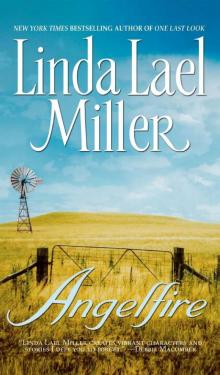 Angelfire
Angelfire Moonfire
Moonfire The Yankee Widow
The Yankee Widow The Cowboy Way
The Cowboy Way Country Strong--A Novel
Country Strong--A Novel Forever and a Day
Forever and a Day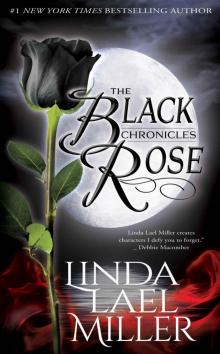 The Black Rose Chronicles
The Black Rose Chronicles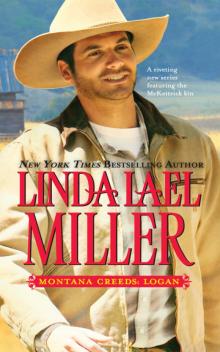 Montana Creeds: Logan
Montana Creeds: Logan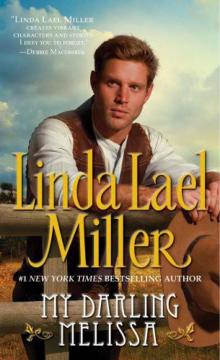 My Darling Melissa
My Darling Melissa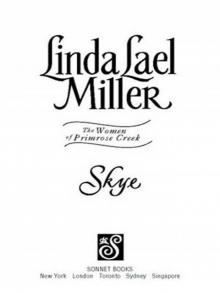 Skye
Skye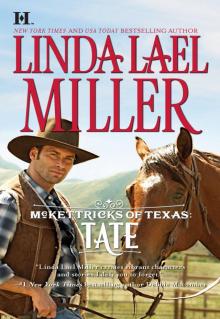 McKettricks of Texas: Tate
McKettricks of Texas: Tate Springwater Seasons
Springwater Seasons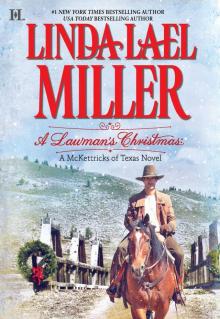 A Lawman's Christmas
A Lawman's Christmas Sierra's Homecoming
Sierra's Homecoming![Parable, Montana [4] Big Sky Summer Read online](http://i1.bookreadfree.com/i/03/22/parable_montana_4_big_sky_summer_preview.jpg) Parable, Montana [4] Big Sky Summer
Parable, Montana [4] Big Sky Summer One Last Weekend
One Last Weekend A Stone Creek Collection, Volume 2
A Stone Creek Collection, Volume 2 Tonight and Always
Tonight and Always Fletcher's Woman
Fletcher's Woman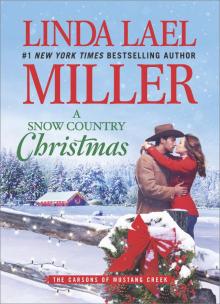 A Snow Country Christmas
A Snow Country Christmas The Last Chance Cafe
The Last Chance Cafe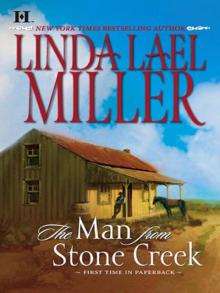 The Man from Stone Creek
The Man from Stone Creek Wanton Angel
Wanton Angel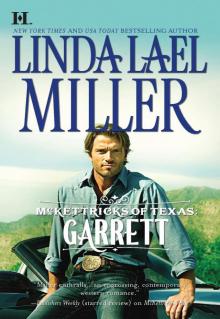 McKettricks of Texas: Garrett
McKettricks of Texas: Garrett Memory's Embrace
Memory's Embrace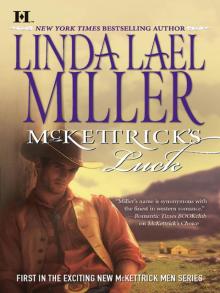 McKettrick's Luck
McKettrick's Luck Pirates
Pirates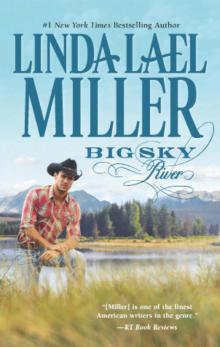 Big Sky River
Big Sky River Willow: A Novel (No Series)
Willow: A Novel (No Series)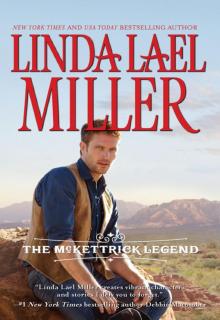 The McKettrick Legend: Sierra's HomecomingThe McKettrick Way (Hqn)
The McKettrick Legend: Sierra's HomecomingThe McKettrick Way (Hqn) Glory, Glory: Snowbound with the Bodyguard
Glory, Glory: Snowbound with the Bodyguard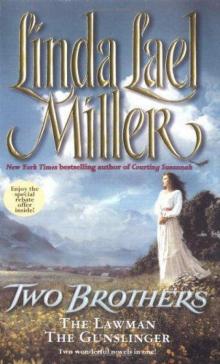 Two Brothers
Two Brothers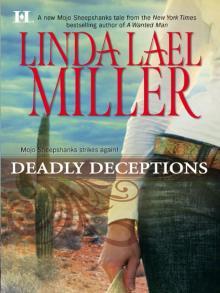 Deadly Deceptions
Deadly Deceptions Big Sky Secrets
Big Sky Secrets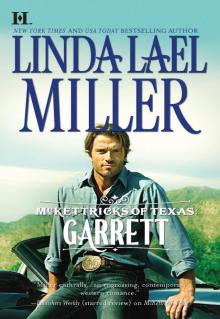 Garrett
Garrett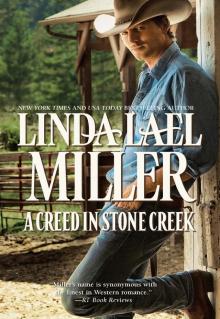 A Creed in Stone Creek
A Creed in Stone Creek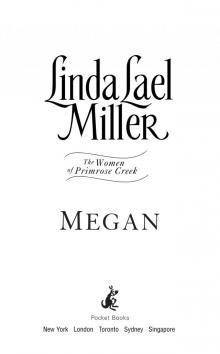 Megan
Megan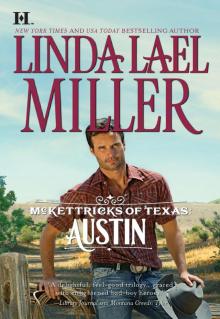 McKettricks of Texas: Austin
McKettricks of Texas: Austin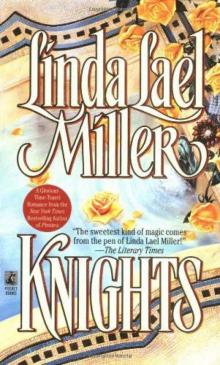 Knights
Knights High Country Bride
High Country Bride More Than Words Volume 4
More Than Words Volume 4 Glory, Glory
Glory, Glory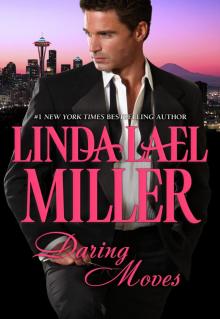 Daring Moves
Daring Moves Lily and the Major
Lily and the Major Courting Susannah
Courting Susannah Banner O'Brien
Banner O'Brien Big Sky Mountain
Big Sky Mountain Linda Lael Miller Bundle
Linda Lael Miller Bundle McKettrick's Pride
McKettrick's Pride A Stone Creek Collection Volume 1
A Stone Creek Collection Volume 1 A Wanted Man
A Wanted Man Big Sky Country
Big Sky Country The McKettrick Legend
The McKettrick Legend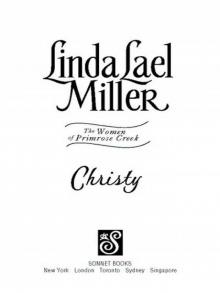 Christy
Christy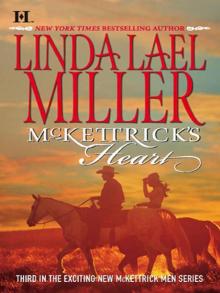 McKettrick's Heart
McKettrick's Heart Resurrection
Resurrection Arizona Heat
Arizona Heat Secondhand Bride
Secondhand Bride Snowflakes on the Sea
Snowflakes on the Sea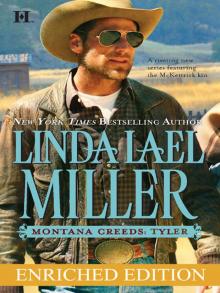 Montana Creeds: Tyler
Montana Creeds: Tyler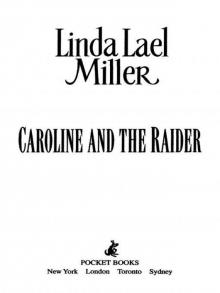 CAROLINE AND THE RAIDER
CAROLINE AND THE RAIDER A Proposal for Christmas: State SecretsThe Five Days of Christmas
A Proposal for Christmas: State SecretsThe Five Days of Christmas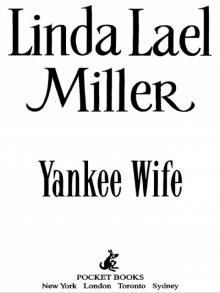 Yankee Wife
Yankee Wife Linda Lael Miller Montana Creeds Series Volume 1: Montana Creeds: LoganMontana Creeds: DylanMontana Creeds: Tyler
Linda Lael Miller Montana Creeds Series Volume 1: Montana Creeds: LoganMontana Creeds: DylanMontana Creeds: Tyler The Christmas Brides
The Christmas Brides McKettricks Bundle
McKettricks Bundle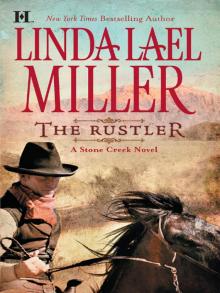 The Rustler
The Rustler Here and Then
Here and Then Only Forever
Only Forever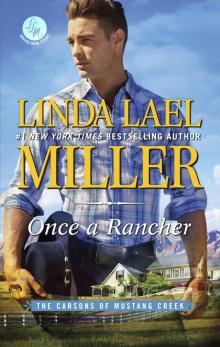 Once a Rancher
Once a Rancher The 24 Days of Christmas
The 24 Days of Christmas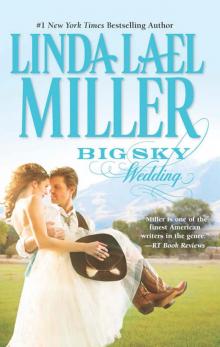 Big Sky Wedding
Big Sky Wedding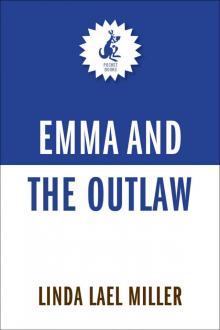 Emma and the Outlaw
Emma and the Outlaw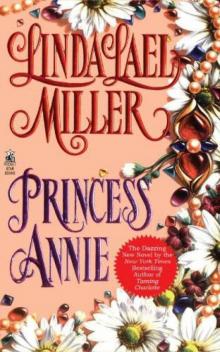 Princess Annie
Princess Annie Wild About Harry
Wild About Harry That Other Katherine
That Other Katherine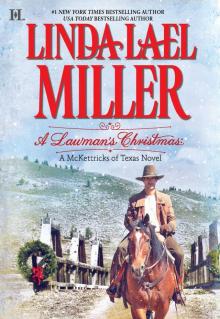 A Lawman's Christmas: A McKettricks of Texas Novel
A Lawman's Christmas: A McKettricks of Texas Novel Just Kate: His Only Wife (Bestselling Author Collection)
Just Kate: His Only Wife (Bestselling Author Collection)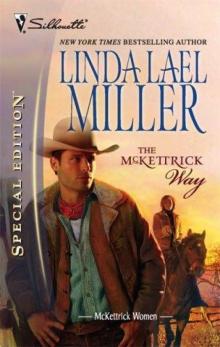 The McKettrick Way
The McKettrick Way Part of the Bargain
Part of the Bargain Taming Charlotte
Taming Charlotte Holiday in Stone Creek
Holiday in Stone Creek One Last Look
One Last Look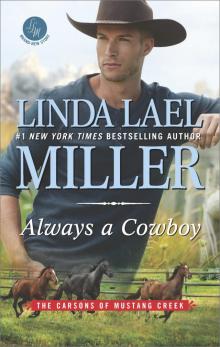 Always a Cowboy
Always a Cowboy Batteries Not Required
Batteries Not Required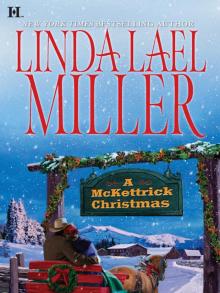 A McKettrick Christmas
A McKettrick Christmas For All Eternity
For All Eternity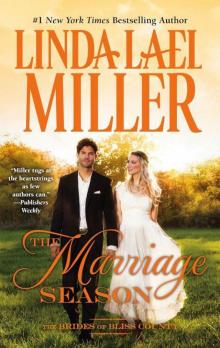 The Marriage Season
The Marriage Season Corbin's Fancy
Corbin's Fancy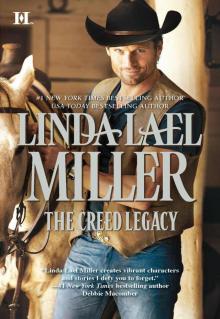 The Creed Legacy
The Creed Legacy Springwater Wedding
Springwater Wedding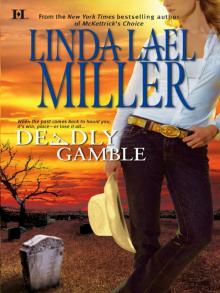 Deadly Gamble
Deadly Gamble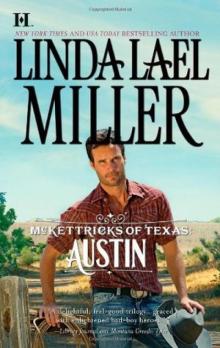 Austin
Austin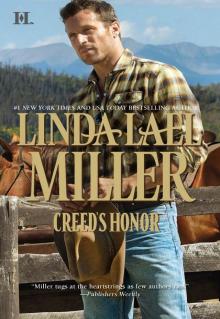 Creed's Honor
Creed's Honor A Creed Country Christmas
A Creed Country Christmas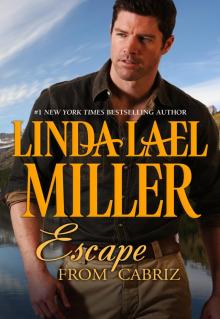 Escape from Cabriz
Escape from Cabriz There and Now
There and Now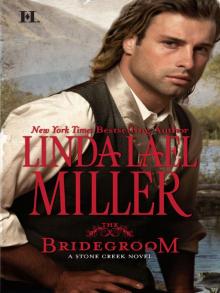 The Bridegroom
The Bridegroom State Secrets
State Secrets Bridget
Bridget